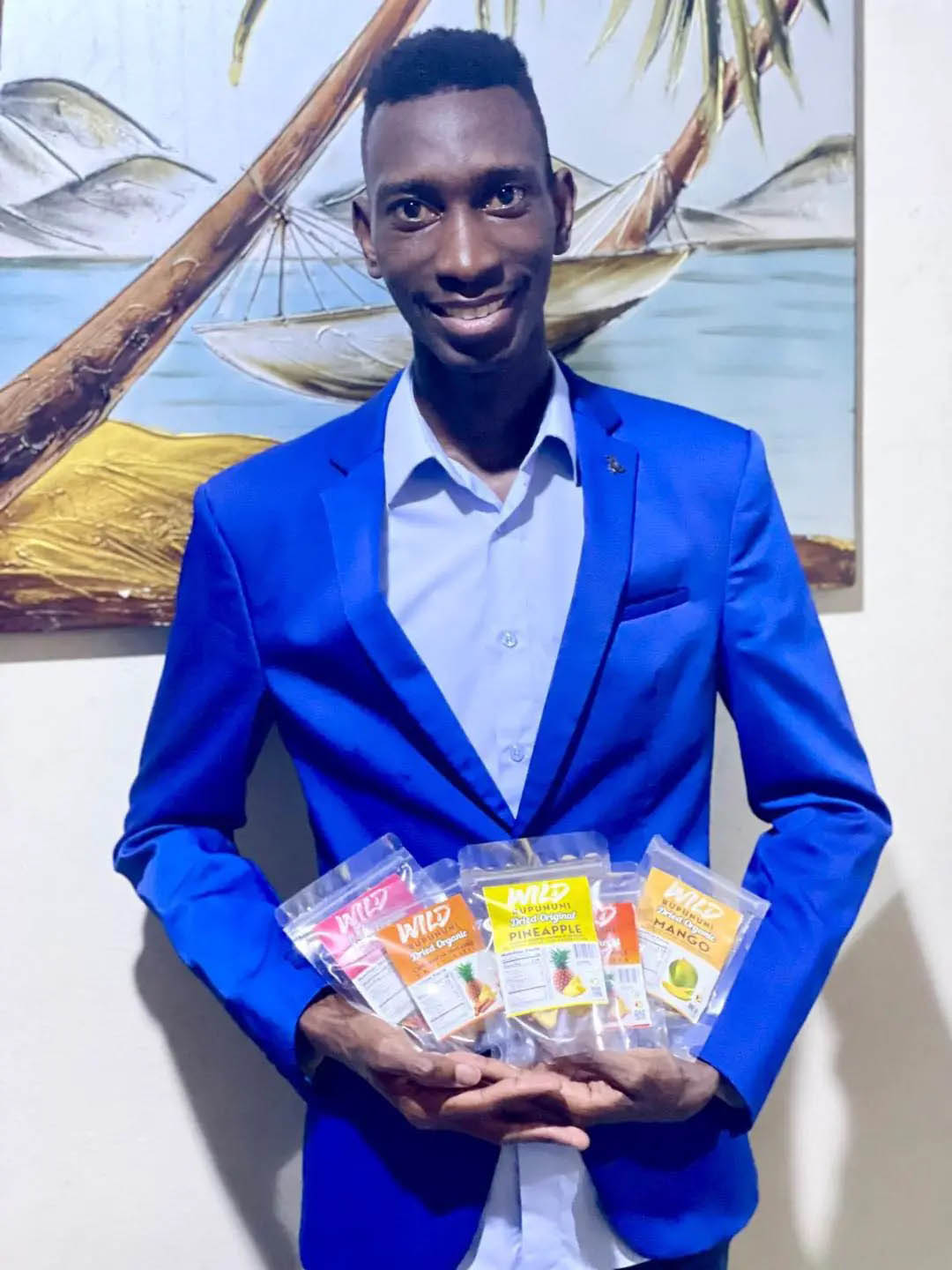Some weeks ago, long before he had even got his feet wet insofar as the agro-processing industry is concerned, 28 year-old Adaiah Fyffe took the decision to get himself and his Wild Rupununi dehydrated sweet fruit condiments to last month’s Barbados Agro Fest event. If it may have appeared to the casual observer that Fyffe may have been jumping the gun, not having even, as yet, established the infrastructure to get a reliable production line going, Fyffe thought differently.
Prior to leaving for Barbados, with no more than a few hundred packets of his dehydrated pineapple snacks, Fyffe had only just begun to get the attention of the local market, his breakthrough distribution deal afforded him by N&S Mattai. Several weeks before departing for Barbados, Fyffe had shared his story with the Stabroek Business (SN December 16, 2022), providing details of the challenges that he had continually faced through the various stages of trying to get the attention of the local market. Even before that, he had been faced, first, with the challenge of finding startup capital, and afterwards, for keeping pace with the continually rising costs of manufacturing and marketing.
In that absence of an orthodox business background, his journey has been a trial-and-error experience though, he told the Stabroek Business shortly after his return from Barbados, that he now “understands better” just what it will take to take his products where he wants them to go. During the interview with the Stabroek Business shortly after he had returned to Guyana from the Agro Fest event, Adaiah conceded that as part of the Guyana Booth that included other more experienced local Agro Processors, he had felt, somewhat, like a deer in headlights. Whereas some of the more experienced Guyanese ‘campaigners’ appeared to be more preoccupied to establishing longer-term distribution contracts with Barbadian partners, Fyffe told the Stabroek Business that his primary focus was on securing a ‘turnover’ from the 300-odd packets of Wild Rupununi products that he had taken to Barbados. This, he explained, was intended to be a precursor to increasing his production volumes to cater for both the local and regional markets.
While Fyffe told the Stabroek Business that his focus on ‘individual retail sales” meant that he was unable to establish any longer term sales contract, he said that the Barbados visit afforded him the opportunity to better understand the regional market. “I’m encouraged,” he told the Stabroek Business, simultaneously expressing his appreciation for the support which he received from the Small Business Bureau which, he said, helped him to “get to Barbados.” Back home, Fyffe said that his immediate focus will be on growing his market in Guyana and securing financial support for acquiring some of the equipment necessary to enhance the efficiency of his operations. While he said that broadening the range of the products which he manufactures is “part of the game plan” his immediate priority is ensuring that his current Wild Rupununi range is enhanced to the point where they become “more marketable, both here in Guyana and in the rest of the Caribbean.





